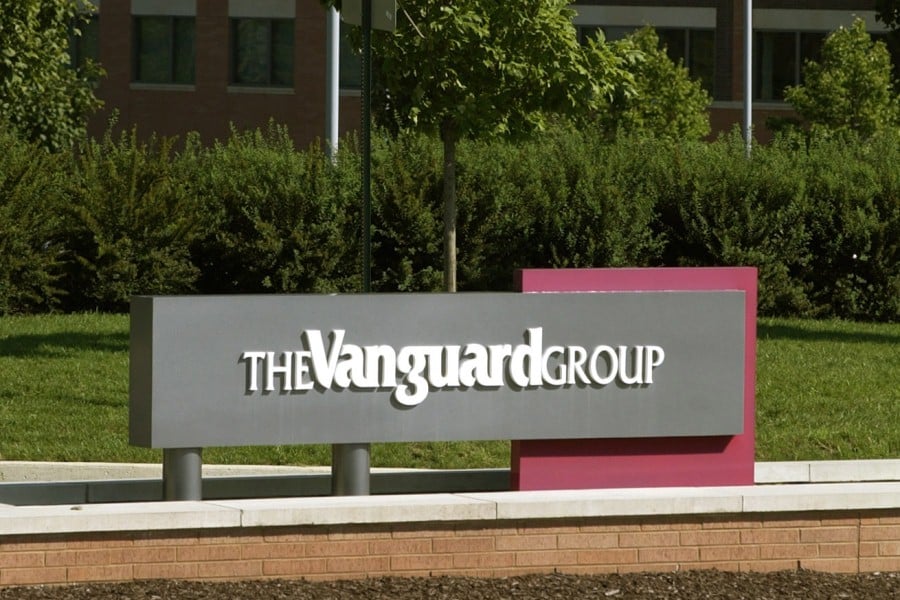If there was any doubt about the
growing appeal of low fees and indexed investing, investors drove the point home in the first quarter by plowing $62 billion worth of net flows into funds managed by the
Vanguard Group.
The
quarterly total flowing into the fund complex known mostly for low-cost indexing strategies was more than the combined total net inflows of Vanguard's three biggest competitors: American Funds,
Fidelity Investments and
iShares from BlackRock.
Vanguard, which holds a commanding 25% share of the total mutual fund and ETF market, was responsible for nearly half of the $136 billion in net flows into mutual funds and exchange-traded funds during the quarter.
"Honestly, it's not that unusual to see Vanguard dominate like this, which is kind of astonishing," said Morningstar Inc. analyst Kevin McDevitt.
The quarterly data, compiled by Morningstar, do not include money market fund assets.
Tom Rampulla, managing director at Vanguard, attributed the strong inflows to a system that is "built to deliver value to clients and is driving the price of products down."
"There's a big secular movement toward passive investing," Mr. Rampulla said.
That secular movement, which tends to gain steam in extended bull markets like that one that has been running since 2009, is illustrated by the five funds that saw the biggest net flows for March.
Three of the top five are Vanguard funds, and four of the top five are domestic-equity index strategies.
The outlier among the top five is the Vanguard Total International Stock ETF (VXUS), a $12.3 billion fund that offers broad exposure to non-U.S. equity markets for a mere 9 basis points.
The focus on fees becomes even more evident when you conpare the fund with the sixth highest net inflows in March with the fund that led in net outflows.
The $63.4 billion
iShares Core MSCI EAFA ETF (IEFA) had March net inflows of $2.7 billion, while the near-identical
iShares MSCI EAFA ETF (EFA) led all funds in net outflows, with $2.2 billion exiting the fund in March.
The Core share class of the fund is up 13.7% this year through Wednesday but down 4.1% over the past 12 months. The older, original version of the strategy is up 13.5% this year and down 3.4% over the past 12 months.
The difference in their appeal comes down to an 8-basis-point expense ratio for the Core version, compared to 31 basis points for the older version of the strategy.
"Lower fees are exactly what's going on there," Mr. McDevitt said. "A lot of investors are just migrating to the cheaper share class."
Todd Rosenbluth, director of mutual fund and ETF research at CFRA, called the pattern of asset flows "a continuation of the trend toward passive investing" but pointed out that Vanguard is uniquely positioned because the company has such a broad product lineup.
In March, for example, Vanguard's active strategies experienced $187 million in net outflows, but the passive strategies carried the day with $22 billion in net inflows.
"Vanguard benefits from having low-cost ETFs, and by the fact they also have most of these products in mutual fund wrappers for investors who want that," Mr. Rosenbluth said. "They are not being dragged down by the shift out of active."
By comparison, Fidelity, which also has a diverse product lineup but is known for active management, experienced $3.6 billion worth of net outflows from its active strategies in March along with $10 billion in net flows into passive strategies.
The major outlier in the active management space in March was American Funds, which doesn't offer ETFs or passive strategies but experienced more than $2 billion in net flows into its active funds.
"American Funds' active inflows are impressive," said Mr. Rosenbluth. "It's impressive to see there is still a loyal following for those funds."
Mr. McDevitt of Morningstar agreed that American Funds is benefitting from strong distribution and below-average fees for active management. He said the company also got a boost from a push into active fixed income over the past few months.
In fact, while all the broad active equity fund categories saw net outflows in March, the active bond categories were all positive.
"American Funds' bond funds have done well, and that been a ballast for them," Mr. McDevitt said.







